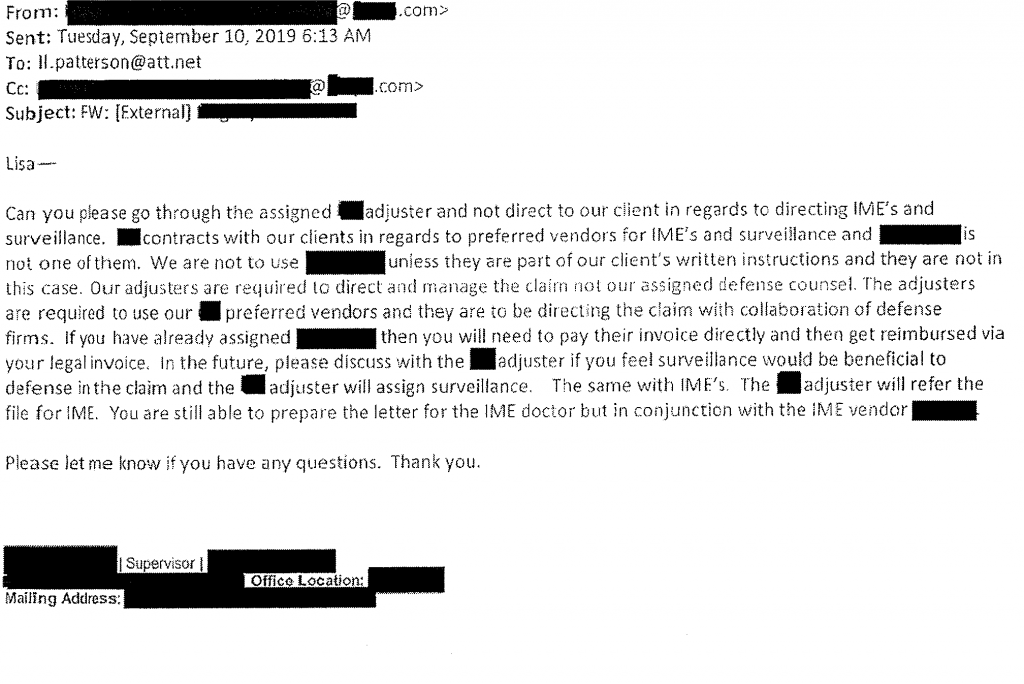The TPA, Defense Counsel, and you (The Client)?

I recently received this email from a Third Party Administrator. It is clear that this Claims Supervisor believes that it is her right to interfere with the legal relationship between attorney and a self-insured employer, but it raises the question- what should be the central objective for each of the professionals on your team? And more importantly what is your goal when utilizing defense counsel. Do you hire defense counsel to take hearings? Do you hire defense counsel to develop both a factual and medical defense? Do you want decisions made on your behalf in litigation by non-attorneys?
The impetus of this email is a growing trend in which litigation is being controlled by non-attorneys to further the economic objectives of the huge conglomerate Third Party Administrators and more specifically, blatant engagement in the unauthorized practice of law. Litigated claims are being directed not by the client through advice of counsel, but by non-attorney claims adjusters.
With that being said, in the 25 years I have practiced in this area, I have encountered amazing, dedicated Third Party adjusters. These experienced and seasoned professionals work hand in hand with defense counsel to provide for their client the best defense in Ohio Workers’ compensation claims. This teamwork is the stuff of 20+ years of successful representation of employers in Ohio with the main objective to 1) have the claim denied; 2) have the claim closed; 2) have the claim settled. These should be the only objectives of a workers’ compensation program. Not every case requires litigation, but when it does a client is best served if the Attorney can provide legal advice to the client to achieve those objectives.
It bears repeating, the Client has the authority to accept recommendations made by an attorney for legal defense. Defense counsel’s duties require them to communicate with, advise, counsel and advocate for our clients, the self-insured employers.
What you don’t see in this email:
- A discussion of what would be best for the claim.
- A discussion of what would be best for the client.
- What expert physician/surveillance company would be best for this individual claim.
- An acknowledgement that this self- insured employer has had 3 different claims examiners in 3 months, and this claims examiner had no familiarity with this case.
What you see in this email:
- Defense counsel is being asked not to speak directly to the self-insured employer.
- Claims adjusters, to the exclusion of self-insured employers, will make all decisions in the claim file.
- All vendors should be in the umbrella of companies provided by the TPA.
- A conflict between a counsel’s legal duties to the self-insured Employer and the TPA’s dedication to furthering their own interests.
Third party administrators are great at managing claims. Lawyers are great at conducting litigation. Isn’t it time the client takes control? How do you want your claims handled?

